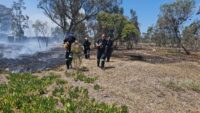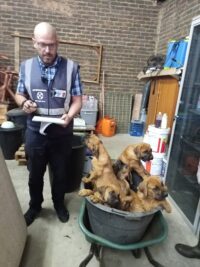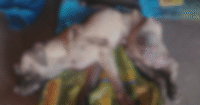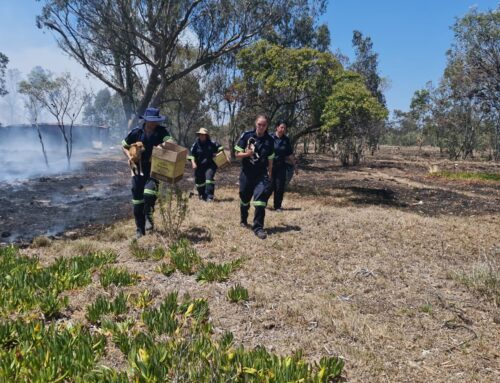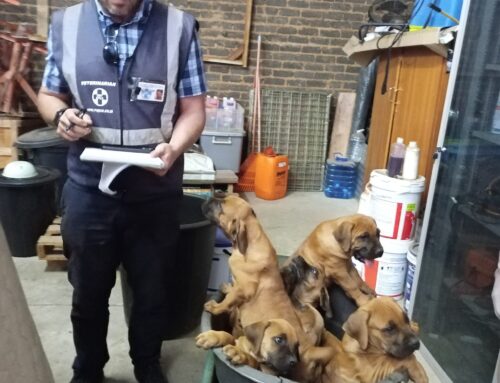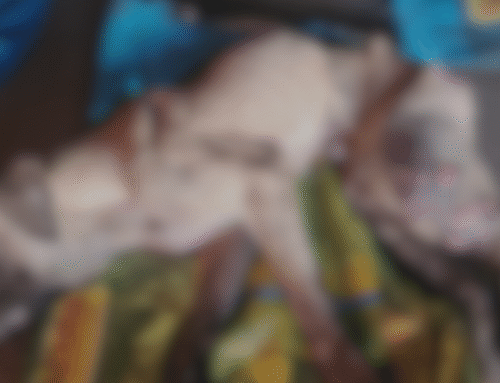Every November, the town of Berlin in the Eastern Cape gears up for the Berlin November. Aware that there have been previous lapses in animal welfare at the annual event, NSPCA Inspectors, along with our Consulting Veterinarian, joined the King Williamstown SPCA to inspect the participating horses in the November 2024 race. While some progress has been made, such as the presence of Department of Agriculture veterinarians, significant concerns remain.
Touted as one of the country’s “premier events”, this three-day festival is backed by major corporate sponsors, government departments, and provincial authorities. Given the prestige of the festival, one would expect strict adherence to protocols, particularly concerning its flagship attraction, promoted as “South Africa’s biggest traditional horse racing experience.”
Horses used in the Berlin November races are unlike those raced in actual traditional rural horseracing, as they are thoroughbreds purchased from the “formal” horse racing industry. In addition, they are “flat run”, as opposed to the “tripling” practice used in traditional rural horse racing. Many horses raced at the Berlin November are still sometimes raced in the formal industry. After years of warnings by the NSPCA, every single horse must undergo an examination and receive veterinary approval before competing. On 30 November 2024, all horses due to participate in the race were examined by our veterinarian, as well as veterinarians from the Eastern Cape Department of Rural Development and Agrarian Reform (DRDAR). Several horses were disqualified due to poor body condition, age, and injury. Treatment was provided by veterinarians for these animals.
Despite this, one prominent competitor defied the directive to withdraw their horse, “Special Meeting”, who had suffered from colic three weeks earlier and exhibited musculoskeletal injuries, with her hip dropping while running. Ignoring veterinary directives, “Special Meeting” was stealthily raced. No signature by any veterinarian was given to the owner and trainer, which calls into question the race organiser’s role and compliance. Before rejecting the decision of three veterinarians, the owner falsely claimed that a private veterinarian had approved “Special Meeting’s” participation. This was untrue. Although “Special Meeting” placed in the race, the event organiser initially agreed that her owner would lose his winnings and be fined for breaching the rules. After following up on the organiser’s claim, he has twice refused to acknowledge that “Special Meeting’s” owner had lost his winnings or was fined for unapproved participation.
It appears that veterinary assessments and welfare standards at the Berlin November serve as little more than “window-dressing”, allowing more prominent owners to bypass rules while restricting less influential participants. The NSPCA strongly condemns this disregard for animal welfare. We assert that all forms of horse racing; traditional, informal, or formal, are based predominantly on financial gain, with animal welfare placing a distant second.
The NSPCA will be pursuing criminal charges against “Special Meeting’s” owner and intend to seek legal advice regarding the organiser’s role. This neglect of animal welfare is unacceptable, and the NSPCA will continue to pursue this matter.
If you are as passionate about animals and their well-being as we are, consider supporting our causes by donating.
Latest News Posts
Will You Be the One Who Takes Action?
Most people will scroll past this. But will you be the one who stands up for animals?
Animal welfare isn’t always in the spotlight, but it changes lives – for every neglected, abused, or suffering animal we help. Our teams work tirelessly, often behind the scenes, ensuring animals across South Africa are protected.
This work is relentless. The challenges are immense. But with more hands, hearts, and resources, we can do even more.
The equation is simple: the more supporters we have, the greater our reach, the stronger our impact.
Be part of the change. Become an NSPCA Project Partner today. From just R50 per month, you can help ensure that no animal suffers in silence.

